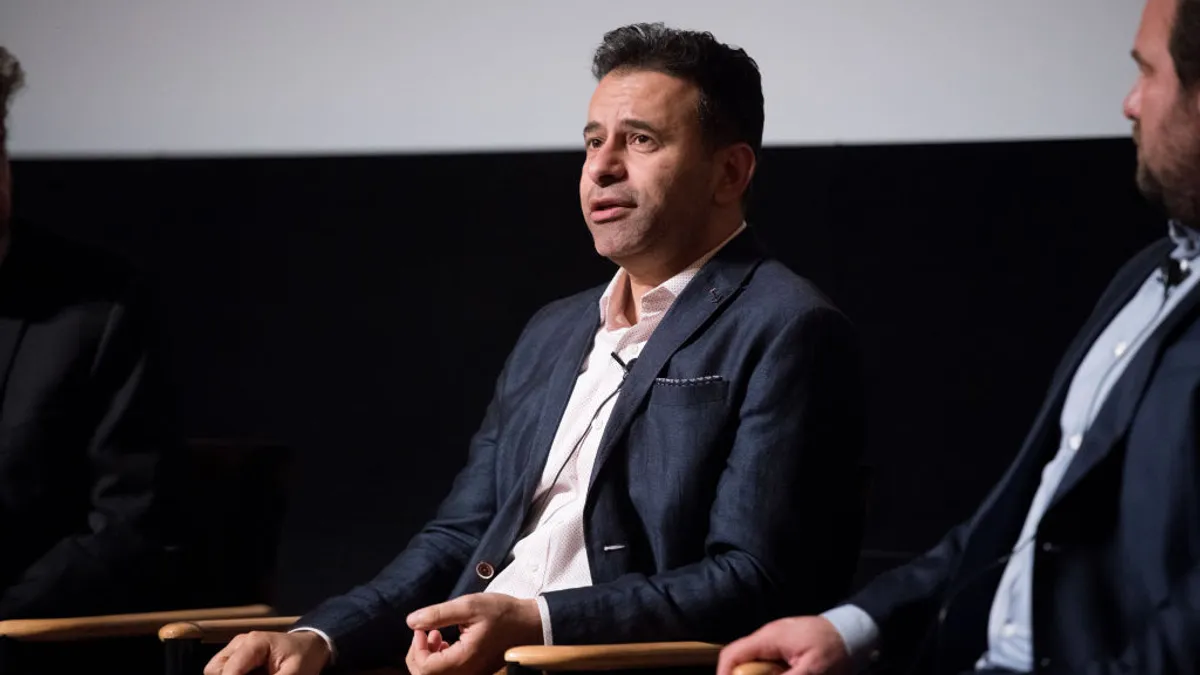GLOBAL NEEDS
What do you think is the biggest global health need? Joseph. As citizens of the developed world, we don’t often think about infectious and tropical diseases but malaria and tuberculosis, along with HIV, are alarmingly prevalent among the poorest people in the world. Every year, these and other infectious diseases kill millions of people in developing countries because the medicines to treat these diseases are inaccessible, outdated, unsafe, ineffective, or simply have not yet been created. We continue to see innovation in the developed world through the terrific advances coming out of academia and the pharmaceutical and biotech industries, but there are greater and greater gaps between that innovation and what’s available to address the unmet needs in the developing world. Our most ambitious hope is that healthcare becomes available to all of those who are in need. This is far beyond the scope of our organization and a hugely ambitious goal. A slightly more realistic and tangible goal is to bring to the developing world those innovative technologies and techniques that are created every day in the developed world and apply them to neglected diseases. ROLE OF PHARMA What role do pharmaceutical and biotechnology companies play in addressing global health needs? Joseph. This is a multifaceted issue and it’s going to require multifaceted participation. The primary asset that the pharma and biotech companies bring is innovation. They are innovating every day in their laboratories. Companies need a stimulus that is consistent with their business model that will further their participation beyond philanthropy and altruism, which are wonderful and certainly pertinent. There are constraints presented by the current corporate business model that have to be addressed. This is where the participation of donor organizations, governments, and nongovernmental organizations becomes important for a successful partnership. Our belief is that there will be less resistance to participating in and addressing global health issues if there are — at least — partial commercial incentives that mitigate the cost of dedicating time and effort to drug development, particularly in the biotech sector, where companies are not quite as large. PROVIDING INCENTIVES What types of incentives would work best? Joseph. From our point of view, one of the key missing links is finding the structural incentives that will promote the participation of companies in solving the unmet needs of the developing world. By structural incentives, I’m referring to two initiatives that we have spent a great deal of effort on here at BIO Ventures for Global Health. One is the Priority Review Voucher program, which was recently adopted by the FDA; another is the Advance Market Commitment grants. In addition to these two important programs, we hope to expand and create new incentives that will increase the willingness and participation of biotech companies to address unmet needs. The Priority Review Voucher program is an elegant program that was initially proposed by three Duke University economics professors. The idea was to incentivize companies to work on neglected diseases, which typically don’t represent a major market or any market at all from a commercial point of view. Here’s how the program works: companies that receive an approval for a drug that treats a neglected disease receive a voucher for a priority review for any other future drug, and that voucher is not limited to neglected diseases. This could potentially represent hundreds of millions of dollars for the company. One voucher has been earned to date, and Novartis holds it. We’re very interested to see how Novartis decides to use this voucher. The Advance Market Commitment works in a very different way. This is a commitment on the part of, in this case, primarily governments to guarantee a market in advance of the approval of a product. If companies take the risk and spend the time, money, and resources, they’ll have a guaranteed market for a certain level of volume. Currently, there is one such initiative in place and it pertains to a pneumococcal vaccine. The governments that are involved are Italy, the United Kingdom, Canada, Russia, and Norway. Other organizations that have invested in the program include the Bill & Melinda Gates Foundation and the Global Alliance for Vaccines Initiative. For more information about both programs, please visit pharmavoice.com. F PharmaVOICE welcomes comments about this article. E-mail us at [email protected]. As Chief Operating Officer, Don Joseph is assisting BIO Ventures for Global Health in its mission to create a bridge — from biotech and pharma companies to global healthcare — to accelerate the development of drugs, vaccines, and diagnostics to address the unmet medical needs of the developing world. BIO Ventures for Global Health’s Don Joseph discusses how the bio/pharmaceutical industry can be incentivized to address global healthcare needs. Companies need incentives that are consistent with their business models to stimulate participation in meeting global needs beyond simple notions of philanthropy and altruism. Donald Joseph was named Chief Operating Officer for BIO Ventures for Global Health (BVGH) in April 2010. Before joining BVGH, he served in senior executive positions in both legal and business roles at private and publicly held biopharmaceutical companies, including Renovis and Abgenix, where he played a key role in its acquisition by Amgen. He has consulted for a number of biopharmaceutical companies and previously served as Chief Operating Officer of the Institute for OneWorld Health, a nonprofit pharmaceutical company devoted to developing new and affordable medicines for neglected diseases. Mr. Joseph has extensive business and legal experience, with more than 15 years in the biopharmaceutical industry. Before entering the biopharmaceutical industry, Mr. Joseph was an international partner in the San Francisco/Palo Alto office of Baker & McKenzie. He received his J.D. from the University of Texas Law School. The developing world is in the midst of an ongoing health tragedy. Millions of people in poor countries die every year from potentially treatable diseases, because the medicines to treat those diseases are inaccessible, outdated, unsafe, ineffective, or simply have not yet been created. More than 1 billion people are affected by diseases such as malaria, tuberculosis, and sleeping sickness each year; 10 million people die from these diseases annually. Millions more are so incapacitated by disease that they are unable to work, care for themselves, or care for their children. Over the past two decades, increased attention to this problem has brought with it desperately needed funding and a bevy of potential solutions. Billions of dollars have been directed toward strengthening health systems and the purchase and delivery of life-saving drugs and vaccines. Pediatric formulations of effective malaria drugs, and vaccines for pneumonia, diarrhea, and cervical cancer have all become available in the just the past few years. Despite a revolution in funding for neglected diseases and the evolution of new R&D partnerships, the current neglected disease pipeline will not fully address key treatment goals (e.g., substantially shortening the duration of certain treatments). The investment in product discovery and translational research for neglected diseases remains a fraction of the level necessary to move promising discoveries from academic laboratories into commercial settings — far too little to ensure a steady stream of new medicines for neglected diseases. Long-term investments in innovation are needed to build a sustainable pipeline of drugs that meet the needs of patients and offer hope of alleviating the suffering from these diseases. Researchers at BIO Ventures for Global Health estimate that a sustained investment of at least $40 million per year for each disease is required to ensure a pipeline that delivers a new, approved therapeutic every three years. F Source: BIO Ventures for Global Health. For more information, visit bvgh.org. Incentives for Meeting Public Health Needs BIO Ventures for Global Health worked closely with global health partners, the U.S. government, and the biopharmaceutical industry to shape and promote several incentives for biopharmaceutical companies to develop: • Priority Review Vouchers (PRVs) — Any organization that gains FDA approval for a drug used to treat a neglected tropical disease is rewarded with a voucher that speeds up the approval process for a future drug. So far, one voucher has been issued. On April 7, 2009, the FDA issued the first priority review voucher to Novartis for the antimalarial drug Coartem. Although the drug was developed in 1996 and has been used for more than a decade internationally, it had never been submitted for approval to the FDA. Coartem treats malaria caused by Plasmodium falciparum, the deadliest malaria species. In clinical trials, Coartem cured 95% of patients, even in areas where there was drug resistance. • Advance Market Commitments (AMCs) — Donor-sponsored funding agreements guarantee innovators a set price for developing medicines for neglected diseases (provided that those medicines meet certain pre-set criteria). In 2007, five industrialized nations (Italy, the United Kingdom, Canada, Russia, and Norway) and the Bill & Melinda Gates Foundation collaborated on an AMC designed to attract investment in pneumococcal vaccines. The AMC guarantees payment to companies that introduce a new vaccine geared to developing countries. Although this AMC was targeted more at incentivizing the building of manufacturing capacity, BIO Ventures for Global Health is advocating for future AMCs to incentivize the research and development of novel products aimed at the developing world. Incentives for Meeting Public Health Needs BIO Ventures for Global Health worked closely with global health partners, the U.S. government, and the biopharmaceutical industry to shape and promote several incentives for biopharmaceutical companies to develop: • Priority Review Vouchers (PRVs) — Any organization that gains FDA approval for a drug used to treat a neglected tropical disease is rewarded with a voucher that speeds up the approval process for a future drug. So far, one voucher has been issued. On April 7, 2009, the FDA issued the first priority review voucher to Novartis for the antimalarial drug Coartem. Although the drug was developed in 1996 and has been used for more than a decade internationally, it had never been submitted for approval to the FDA. Coartem treats malaria caused by Plasmodium falciparum, the deadliest malaria species. In clinical trials, Coartem cured 95% of patients, even in areas where there was drug resistance. • Advance Market Commitments (AMCs) — Donor-sponsored funding agreements guarantee innovators a set price for developing medicines for neglected diseases (provided that those medicines meet certain pre-set criteria). In 2007, five industrialized nations (Italy, the United Kingdom, Canada, Russia, and Norway) and the Bill & Melinda Gates Foundation collaborated on an AMC designed to attract investment in pneumococcal vaccines. The AMC guarantees payment to companies that introduce a new vaccine geared to developing countries. Although this AMC was targeted more at incentivizing the building of manufacturing capacity, BIO Ventures for Global Health is advocating for future AMCs to incentivize the research and development of novel products aimed at the developing world. The Fight to End Global Disease The Need for More R&D For many neglected diseases, there are no vaccines to prevent these diseases, no diagnostics to determine who has these diseases, and no drugs to cure them. The greatest health systems in the world are not much help to a patient suffering from a disease for which there is no treatment. Chagas Disease: Case in Point It is estimated that 8 million to 9 million people in the Americas are currently infected with Chagas disease, with 41,000 new cases each year. (Chagas disease is caused by Trypanosoma cruzi, a parasite related to the African trypanosome that causes sleeping sickness. It is one of the major health problems in South America.) Due to immigration, the disease also affects people in the United States. Despite these staggering statistics, the current drugs have considerable toxicity and are only effective in the acute and early chronic disease and in congenital cases. Because Chagas disease can be asymptomatic for many years, the majority of patients are diagnosed late in the chronic phase when treatment is no longer possible. To save the lives of the estimated 9 million people infected with Chagas disease, new drugs and better diagnostics must be developed. Sometimes it can seem like the need is overwhelming, but progress is being made. Through the work of BIO Ventures for Global Health and many others, the pipeline for new drugs, vaccines, and diagnostics is growing, although it is still insufficient to meet current needs.











